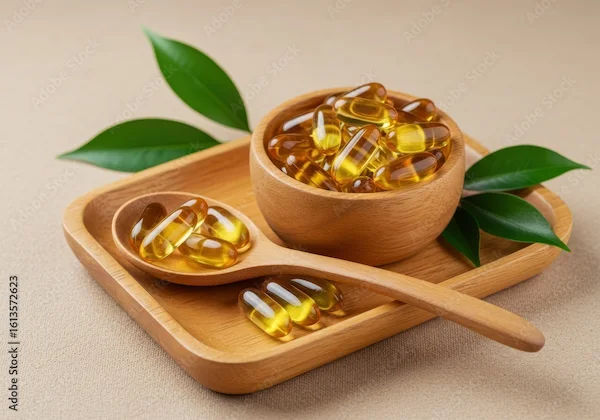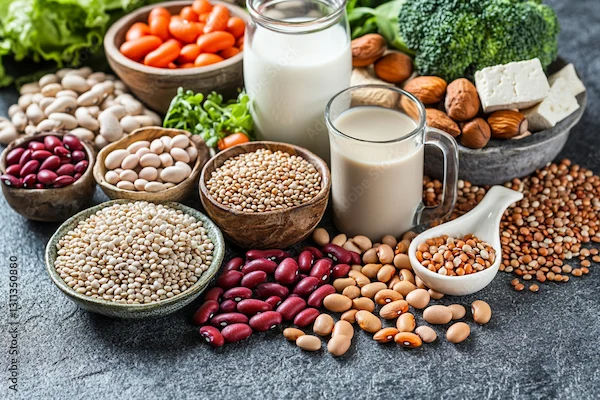Best Anti-Inflammatory Foods To Add To Your Daily Diet
Discover the best anti-inflammatory foods to support a healthy diet, reduce chronic inflammation, and boost wellness. Easy tips, lists, and FAQs.

Written by Dr. Mohammed Kamran
Reviewed by Dr. Dhankecha Mayank Dineshbhai MBBS
Last updated on 13th Jan, 2026

Introduction
Inflammation is your body’s natural defence against injury and infection. Short-term inflammation helps you heal. But when inflammation stays high for months or years, it’s linked to health problems such as heart disease, type 2 diabetes, certain cancers, and arthritis. The good news: what you eat every day can help. Choosing anti-inflammatory foods is a simple, achievable way to support a healthy diet, improve long-term wellness, and feel your best.
Rather than focusing on quick fixes, an anti-inflammatory way of eating is about building steady, sustainable habits: more plants, healthy fats, and minimally processed foods; fewer ultra-processed items and sugary drinks. Below, you’ll find a practical guide to the best choices, how to use them, and answers to common questions.
What is Inflammation and How Does Food Influence It?
Here’s the difference between acute and chronic inflammation and how foods affect these processes:
- Acute inflammation: Short-term and helpful - for example redness or swelling after an injury.
- Chronic inflammation: Low-grade, lasting inflammation that can damage tissues. Lifestyle factors such as diet, activity, sleep, stress, and smoking influence it.
Food affects inflammation in several ways:
- Nutrients like fibre, omega-3 fats, polyphenols, vitamins, and minerals regulate inflammatory pathways and support gut health.
- Ultra-processed foods high in refined starches, sugars, trans fats, and certain saturated fats can drive inflammation.
- The long-term dietary pattern most associated with lower inflammation resembles the Mediterranean eating style: colourful plants, whole grains, legumes, nuts, seeds, fish, and olive oil; minimal processed meats and sugary foods.
Consult Top Specialists
How an Anti-Inflammatory Eating Pattern Supports Health?
Here how an anti-inflammatory eating pattern supports health
- Emphasises fibre: Supports healthy gut bacteria that produce anti-inflammatory short-chain fatty acids.
- Prioritises healthy fats: Increases omega-3 and monounsaturated fats linked with heart and metabolic health.
- Includes phytonutrients: Plant compounds like flavonoids, carotenoids, and catechins modulate inflammatory pathways.
- Focuses on overall pattern: Benefits come from consistency, not one single “superfood.”
The Best Anti-Inflammatory Foods To Add To Your Daily Diet
Use this list to build meals and snacks. Variety is key - mix and match across the week.
Fruits and Vegetables (Aim for a Rainbow)
- Berries: Anthocyanins and fibre; ideal for oatmeal, yoghurt, or salads.
- Leafy greens: Spinach, kale, arugula, Swiss chard - nutrient-dense for sautés or soups.
- Cruciferous vegetables: Broccoli, cauliflower, Brussels sprouts, cabbage - rich in glucosinolates.
- Tomatoes: Source of lycopene, especially when cooked with olive oil.
- Peppers, carrots, beets, citrus, cherries, apples, pears - add colour and diverse plant compounds.
Whole Grains
- Oats, quinoa, brown rice, bulgur, farro, barley - high in fibre and micronutrients.
- Tip: Use as bases for grain bowls with vegetables, legumes, and olive oil.
Legumes:
- Beans of all kinds, lentils, chickpeas, peas - full of fibre, polyphenols, and minerals.
- Add to stews, soups, salads, tacos, and dips.
Fish and Seafood Rich in Omega-3s:
- Salmon, sardines, mackerel, herring, trout.
- Aim for two servings per week; canned options are cost-effective.
Nuts and Seeds:
- Walnuts, almonds, pistachios, hazelnuts, pecans; flax, chia, hemp seeds.
- Sprinkle on oats, yoghurt, salads, or smoothies.
Healthy Fats and Oils:
- Extra-virgin olive oil - cornerstone of anti-inflammatory diets.
- Avocados and avocado oil - rich in monounsaturated fats.
- Replace butter or shortening in daily cooking where possible.
Fermented and Probiotic Foods:
- Yoghurt with live cultures, kefir, tempeh, miso, kimchi, sauerkraut.
- Choose plain varieties to avoid excess sugar.
Herbs and Spices:
- Turmeric, ginger, garlic, cinnamon, rosemary, oregano.
- Try golden milk, ginger tea, or herb-rich marinades.
Tea, Coffee, and Cocoa:
- Green and black tea - rich in catechins.
- Coffee - beneficial for many when consumed without sugary additions.
- Dark chocolate (70 percent+) in small amounts.
Hydration and Produce-Forward Soups:
- Water, broths, and vegetable-rich soups that provide fibre and phytonutrients.
What to Limit to Help Lower Inflammation?
Here is what to limit to lower inflammation over time:
- Ultra-processed foods high in refined carbohydrates and sugars
- Sugary beverages
- Processed and red meats
- Trans fats
- Excess alcohol
- Excess salt for those who are salt-sensitive
Simple Tips to Make it Stick
Here are some daily habits that reinforce an anti-inflammatory pattern:
- Fill half your plate with vegetables or fruit.
- Cook with olive oil instead of butter.
- Swap refined grains for whole grains.
- Aim for fish twice weekly; legumes 3–4 times weekly.
- Choose snacks like nuts, yoghurt with fruit, or vegetables with hummus.
- Use herbs, spices, and citrus for flavour.
- Batch-cook and prep ahead.
- Support diet changes with good sleep, movement, and stress management.
A One-Day Sample Menu Using Anti-Inflammatory Foods
Here is what this section covers: a simple example day using these foods:
- Breakfast: Oatmeal with cinnamon, blueberries, walnuts, and plain yoghurt; green tea.
- Lunch: Quinoa bowl with roasted vegetables, chickpeas, tomatoes, and olive oil–lemon dressing.
- Snack: Apple with almond butter; dark chocolate.
- Dinner: Baked salmon with turmeric–ginger rub, sautéed spinach, and farro.
- Beverage: Water or sparkling water with citrus.
Putting It Together: A Daily, Healthy Diet that Calms Inflammation
Think of anti-inflammatory foods as building blocks. When you consistently choose plants, whole grains, legumes, nuts, seeds, fish, and olive oil, you support your heart, brain, joints, and gut. Over time, these small daily choices accumulate. If you have a medical condition or take medications, speak with a healthcare professional for personalised advice.
Conclusion
An anti-inflammatory eating pattern is not a strict diet but a flexible, sustainable approach rooted in whole, minimally processed foods. By choosing a variety of colourful plants, healthy fats, legumes, whole grains, and omega-3-rich fish, you give your body the tools it needs to regulate inflammation naturally. Small, consistent habits matter more than perfection — even gradual swaps can improve your wellbeing over time. When combined with regular movement, quality sleep, and stress management, this way of eating becomes a powerful foundation for long-term health.
Consult Top Specialists
Consult Top Specialists

Ms Malabika Datta
Dietician
19 Years • Bsc (Clinical Nutrition & Dietetics), Msc (Dietetics & Food Service Management)
Kolkata
Malabika’s Diet Clinic, Kolkata

Ms. Sushma Jaiswal
Dietician
42 Years • M.Sc.(Food & Nutrition)
Bengaluru
Swasthya Nutrition, Bengaluru

Ms. Neelanjana J
Dietician
5 Years • Bsc., Msc. Nutrition and Dietetics specialised general weight management, PCOS/PCOD weight loss and Diabetes management. A clinical dietitian with 4+ year experience specializing in evidence-based, result-oriented nutrition therapy. I have extensive experience in weight loss, thyroid management, PCOD/PCOS, weight gain, and diabetes & prediabetes care. My approach is personalized, practical, and sustainable—focusing on helping individuals achieve long-term lifestyle change rather than quick fixes. I work closely with clients to understand their medical history, lifestyle, and goals, and then design customized diet plans that support hormonal balance, metabolic health, and overall wellbeing. My goal is to make nutrition simple, realistic, and effective—so you see measurable results and feel your healthiest self.Auther in Health benefits of jackfruit (Artocarpus heterophyllus Lam.) seeds: A review (2023) The Pharma Innovation Journal Co- Auther in Malnutrition in Women: A review (2023) The Pharma Innovation Journal. Highfield Level 3 in HACCP. Highfield Level 4 International Award in Food Safety Managment
Bengaluru
Apollo Clinic, JP nagar, Bengaluru

Dr Darshana R
General Physician/ Internal Medicine Specialist
15 Years • MBBS, MD, DNB (Internal Medicine), Diploma in Allergy, Asthma and Immunology , Fellowship in Diabetes
Bengaluru
Apollo Clinic, JP nagar, Bengaluru
(125+ Patients)
Ms Chetu Singhi
Dietician
20 Years • MSC Dietetics & Nutrition
Kolkata
RB Diagnostic - Dietician Diet2fit Chetu Singhi, Kolkata
Consult Top Specialists

Ms Malabika Datta
Dietician
19 Years • Bsc (Clinical Nutrition & Dietetics), Msc (Dietetics & Food Service Management)
Kolkata
Malabika’s Diet Clinic, Kolkata

Ms. Sushma Jaiswal
Dietician
42 Years • M.Sc.(Food & Nutrition)
Bengaluru
Swasthya Nutrition, Bengaluru

Ms. Neelanjana J
Dietician
5 Years • Bsc., Msc. Nutrition and Dietetics specialised general weight management, PCOS/PCOD weight loss and Diabetes management. A clinical dietitian with 4+ year experience specializing in evidence-based, result-oriented nutrition therapy. I have extensive experience in weight loss, thyroid management, PCOD/PCOS, weight gain, and diabetes & prediabetes care. My approach is personalized, practical, and sustainable—focusing on helping individuals achieve long-term lifestyle change rather than quick fixes. I work closely with clients to understand their medical history, lifestyle, and goals, and then design customized diet plans that support hormonal balance, metabolic health, and overall wellbeing. My goal is to make nutrition simple, realistic, and effective—so you see measurable results and feel your healthiest self.Auther in Health benefits of jackfruit (Artocarpus heterophyllus Lam.) seeds: A review (2023) The Pharma Innovation Journal Co- Auther in Malnutrition in Women: A review (2023) The Pharma Innovation Journal. Highfield Level 3 in HACCP. Highfield Level 4 International Award in Food Safety Managment
Bengaluru
Apollo Clinic, JP nagar, Bengaluru

Dr Darshana R
General Physician/ Internal Medicine Specialist
15 Years • MBBS, MD, DNB (Internal Medicine), Diploma in Allergy, Asthma and Immunology , Fellowship in Diabetes
Bengaluru
Apollo Clinic, JP nagar, Bengaluru
(125+ Patients)
Ms Chetu Singhi
Dietician
20 Years • MSC Dietetics & Nutrition
Kolkata
RB Diagnostic - Dietician Diet2fit Chetu Singhi, Kolkata
More articles from General Medical Consultation
Frequently Asked Questions
Is there a single “best” anti-inflammatory food?
There isn’t one magic food. The overall pattern matters most. That said, regularly eating vegetables, berries, whole grains, legumes, nuts, olive oil, and omega-3–rich fish offers strong benefits when combined.
Do I need supplements like turmeric or fish oil?
Food first is a good rule. Some people may benefit from fish oil or turmeric, but results vary and can interact with medications. Discuss supplements with your clinician, especially if you take blood thinners, have gallbladder issues, or are pregnant.
Can anti-inflammatory eating help with arthritis pain?
Many people report improvements, and research suggests that patterns rich in plants and omega-3s may help reduce symptoms in some forms of arthritis. Individual results differ; it’s a helpful addition to, not a replacement for, medical care.
How quickly will I notice changes?
Some people feel better - more energy, less bloating - within days to weeks. Measures of inflammation and disease risk generally change over months. Consistency is key.
Is this way of eating expensive or hard to follow?
It doesn’t have to be. Use frozen fruits and vegetables, canned beans and fish, and bulk whole grains. Plan simple meals, cook once and eat twice, and flavour with herbs and spices. Over time, many people find this approach practical and satisfying.




